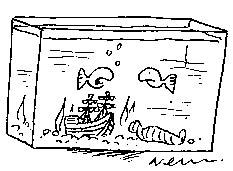When politicians start complaining about the media, you know that they’re in trouble.
When politicians start complaining about the media, you know that they’re in trouble. This weekend, a Liberal Democrat minister bounded up to me to complain about a double standard in the way that his party was reported. ‘Yes, we’ve lost councillors but we’ve gained five Cabinet ministers. Did anyone ever say that Tony Blair should resign because he was eroding Labour’s base in local government?’
The minister’s bullishness couldn’t disguise the fact that the Liberal Democrats are staring disaster in the face. Not only did they lose 695 councillors last Thursday, but they are also in danger of a wipeout at the next general election.
In the north, the Lib Dems are being punished for going into coalition with the Conservatives. In the south, meanwhile, coalition has meant that their supporters are now prepared to do what they once considered unthinkable, and vote Tory. To make matters worse, the referendum on the alternative vote — which would have increased the number of Lib Dem MPs — was defeated by a margin of more than two to one.
Politics in England is once more dividing into only two camps. Those who are in favour of the coalition are voting Conservative and those who are against it are voting Labour. The Liberal Democrats appear to be getting none of the credit for the coalition’s successes, and much of the blame for its failures.
If the Lib Dems can’t find a way of fixing this problem in the next four years, then disaster beckons. Nearly everyone in the party concedes that the coalition’s initial strategy of emphasising how close they and the Conservatives had become has not worked for them. As one source put it to me, ‘It’s been good for the reputation of coalition government but bad for us.’
But there is a danger that the Lib Dems are lurching from one extreme to the other: from public displays of inter-party affection to airing all the coalition’s dirty laundry. On Monday, for instance, four different Liberal Democrats launched four different attacks on their coalition partners before lunch. This infighting makes the coalition look weak and divided, and electorates invariably punish weak and divided governments.
Nick Clegg is aware of this danger. One of his close allies says that, while policy bust-ups are unavoidable, the government should see them coming, and plan accordingly. ‘You don’t want too many surprises,’ he says. ‘We still have to work together for the next four years.’ The Liberal Democrats remain angry about the recent row over internships not simply because David Cameron undermined Clegg’s position, but because he did not warn him that he would. It was not an agreed disagreement.
At the same time, Clegg knows that he cannot afford to be the only senior Liberal Democrat who does not spout anti-Conservative rhetoric. That leaves him looking like a Tory patsy. To address this problem, Clegg summoned all the Liberal Democrat Cabinet ministers to a meeting on Monday. He told them that he needed them to do more to defend the coalition; that he could not be the only Liberal Democrat speaking up for it. As one ally explains, ‘Nick is almost being forced to be the voice of unity because Vince [Cable] and Chris Huhne are being the party’s conscience.’
The Lib Dem leadership hope that Clegg’s intervention will put a stop to Cable and Huhne’s competition in the anti-Tory stakes, as well as making it possible for Clegg to carve out a distinctive Liberal Democrat position without destabilising the coalition. But reining in Cable and Huhne will not be easy. They have both developed a taste for headlines and they have reason to think that there will be a Lib Dem leadership contest before the next election.
However, the task of putting Cable and Huhne back on their leashes is nothing compared to the challenge of working out what the distinctive Lib Dem message to voters should be. In opposition, one senior Liberal Democrat admitted to me this week, the party was run almost as a franchise operation. Its candidates could make very different political noises depending on where they were trying to get elected. This approach has been found out in government.
Clegg acknowledges that the left-wing votes his party lost by entering into coalition with the Conservatives are not coming back while he’s in charge. But he is not prepared to accept the Liberal Democrats becoming a smaller, albeit more ideologically coherent, party. Instead, he is still trying to position the party as one that combines the traditional economic competence of the Conservatives with Labour’s historic commitment to fairness.
The trouble is that he is being dragged leftwards away from the centre ground by his party, which at heart remains social democratic. Thursday’s election results and the defeat of the referendum mean that he cannot afford to carry on challenging his party membership and MPs.
But if Clegg follows his party’s lead and steers left, he’ll be heading into an electoral cul de sac. Left-wing voters simply will not return to the Liberal Democrats before the next election. Their anger at the party’s support for spending cuts is too raw.
Compounding Clegg’s difficulties is that the Tories now have their eyes on the Liberal Democrats’ southern seats. They believe that they have a good chance of making major gains against them at the next election because the coalition has scuppered anti-Tory tactical voting and further detoxified the Tory brand.
The Tories, as the referendum demonstrated, are also prepared to run hard against their coalition partners. One Tory said to me this week, ‘The AV campaign was just a delicious preview of what we are going to do to them in 2015.’







Comments